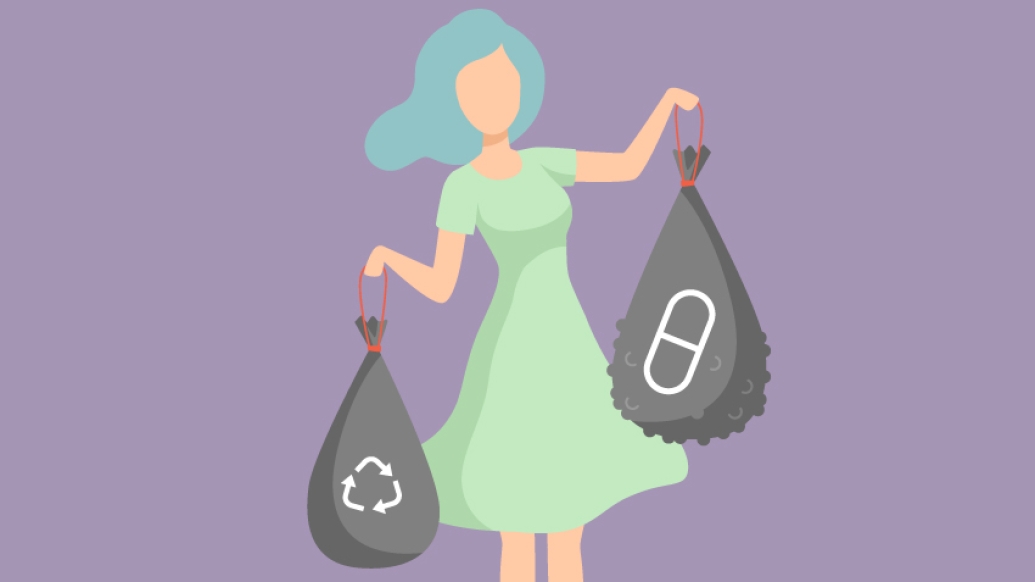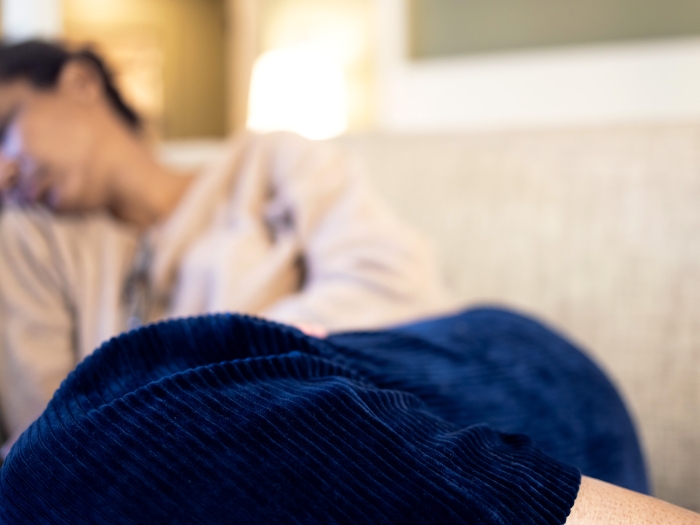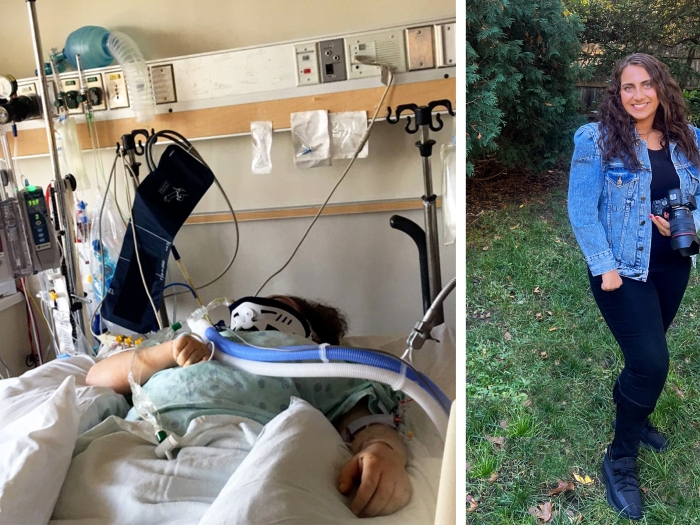A randomized trial shows that providing patients with special disposal bags doubled the odds they would safely dump their leftover opioid pain medicine.
11:00 AM
Author |

Many surgery patients head home from the hospital with opioid pain medicine prescriptions, and most will have pills left over after they finish recovering from their procedures.
Now, a new study suggests patients should also leave the hospital with something to help them safely get rid of those leftovers — and keep the potentially addictive pills from being misused or polluting the environment.
LISTEN UP: Add the new Michigan Medicine News Break to your Alexa-enabled device, or subscribe to our daily audio updates on iTunes, Google Play and Stitcher.
In a research letter in the new issue of JAMA Surgery, a team from the University of Michigan reports that providing special disposal bags doubled the percentage of patients who safely disposed of their unneeded opioids within six weeks of an operation.
Educating them without providing the disposal bag had a far smaller effect on safe disposal in this time frame.
The difference in disposal surprised the research team, led by Chad Brummett, M.D., director of pain research at Michigan Medicine, U-M's academic medical center.
"We need everyday disposal options that address patients' needs and break down common barriers for safe disposal through other means, such as bringing unneeded medications to takeback drives or law enforcement locations that require a special trip and may make some patients uncomfortable," Brummett says.
We need to help our patients understand the risks that these medications can pose once their surgical pain has subsided, and the need to get them out of their homes safely.Jennifer Waljee, M.D.
Reaching the environment
Despite the strong findings, Brummett adds, it will take even more effort to get unused opioids out of homes, where they can lead to addiction or poisoning, or to keep them from reaching the environment through landfills and sewer systems.
Even among patients who received free disposal supplies, more than 40 percent hadn't disposed of the drugs when the researchers contacted them four to six weeks after their operations. This highlights the need for continued attention to proper disposal, the researchers say.
MORE FROM MICHIGAN: Sign up for our weekly newsletter
The study randomly assigned surgery patients who were prescribed opioids to receive one of three options: usual care, with no structured disposal information or materials; an informational brochure that detailed the importance and proper methods for safe disposal; or a specially designed bag for prescription drug disposal.
The bags used in the study, called Deterra bags, contain activated charcoal that binds to prescription drugs when water is added and makes them unusable by humans.
Once the bags are in a landfill, they're designed to break down while keeping the drugs from leaching into the environment.
The bags cost about $7 apiece for individual buyers; the research team bought them in bulk at a wholesale price without involving the manufacturer in the study. The study was mainly funded by the Michigan Department of Health and Human Services.
Driving disposal
Brummett and co-authors Jennifer Waljee, M.D., and Michael Englesbe, M.D., run the Michigan Opioid Prescribing and Engagement Network, which studies and aims to reduce the use of opioids in treating the acute pain from surgery and procedures and to encourage safe disposal of leftover opioids.
The team has organized drug takeback events around Michigan. It has also created an online map of Michigan disposal locations and a guide for local organizations to hold takeback drives.
Disposal differences
The study included 63 patients who received usual care, 75 who received the brochure and 70 who received a disposal bag. All participants filled opioid prescriptions after surgery, had stopped taking opioids by the time the researchers contacted them and reported having leftover pills.
The patients, and 188 others who did not meet all these criteria, had been randomized before their operations into one of the three groups.
Just over 28 percent of the patients who received no information or disposal bag reported that they had disposed of their leftover pills by the time the research team contacted them. They did so by throwing the pills in the garbage, flushing them down the toilet or taking them to a law enforcement agency or another location to drop them off.
The percentage was only slightly higher — 33 percent — among patients who received the educational brochure about the importance of safe disposal. In this group, those who said they had tossed theirs in the garbage were more likely to say they had mixed the drugs with unpalatable substances; this can keep the pills from being used by others.
Among those who received an activated charcoal bag, 57 percent reported that they had disposed of their leftover opioids in some way, mostly by using the bag. But 10 percent put their unaltered pills in the garbage or toilet despite having the bag available.
More effort needed
"We need to help our patients understand the risks that these medications can pose once their surgical pain has subsided, and the need to get them out of their homes safely," says Waljee, a plastic surgeon and, like Brummett and Englesbe, a member of the U-M Institute for Healthcare Policy and Innovation.
Last year, she led the design of a national poll on opioid use and disposal among older adults through IHPI's National Poll on Healthy Aging. In all, 86 percent of respondents who said they'd received an opioid prescription in the past two years, and had pills left over, said they had kept it at home, including for potential future use. Nine percent said they had thrown the pills in the trash or down the toilet, and 13 percent said they had taken them to an approved location. In all, 49 percent of those who had been prescribed an opioid for any reason said they had leftover pills.
The new study did not assess the impact of another disposal option that has recently become available to Michigan Medicine surgery patients and is popping up in other hospitals: a secure drop-off box that allows any patient to dispose of unneeded medications during a clinical visit.
Poll: Providers Aren't Doing Enough to Warn Older Patients About Opioids
Currently, U.S. and Canadian environmental agencies and the U.S. Food and Drug Administration recommend proper disposal of opioids at authorized takeback locations for controlled substances, to keep them from reaching the environment. Flushing down the toilet is suggested by the FDA only if other options are not available.
Research by the Michigan-OPEN team and others has shown that having excess prescribing of opioids to surgical and dental procedure patients can lead to long-term use of the drugs, which have an addictive potential.
The team offers free evidence-based opioid prescribing guidelines for surgical teams, which are based on the quantities of pills patients have reported taking.
In addition to Brummett, Waljee and Englesbe, the study's authors include Rena Steiger, Caitlin Khalsa, Jennie DeBlanc and Lindsay Denton.

Explore a variety of healthcare news & stories by visiting the Health Lab home page for more articles.

Department of Communication at Michigan Medicine
Want top health & research news weekly? Sign up for Health Lab’s newsletters today!





